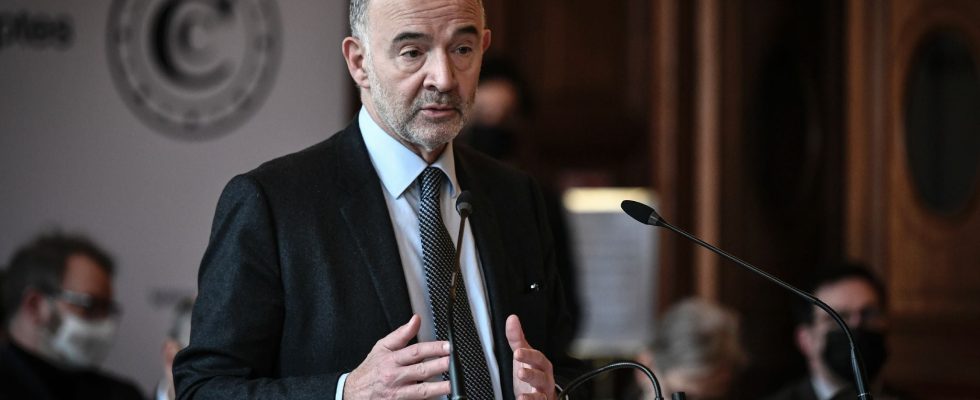This is what we call a vitriolic report. This Monday, March 4, the Court of Auditors published his report on the Committee for the Prevention of Radicalization (CIPDR). A body created in 2006 to “design and manage the sole crime prevention policy at the national and decentralized levels”, and whose powers have since been extended to “the prevention of radicalization” and the fight against separatism.
And the conclusions of the Court of Auditors on the CIPDR are harsh to say the least. During a press conference this Monday, March 4, the president of the Court of Auditors, Pierre Moscovici sounded the alarm: “The organization and management of the CIPDR call for rapid restoration of order.”
A “failing” organization
“Missions without framework or evaluation”, “seriously failing management”, “a secretary general without status”, “absence of annual transmission to Parliament”… The wise men of rue Cambon are crushing the CIPDR. Everything goes there. First of all, human resources. “The general secretariat, whose workforce will approach 60 agents at the end of 2022, nevertheless still does not have its own status, consistent with the reality of its constantly developing action”, points out the report which at the same time denounces the “lack of clarity” of the organization chart.
A warning which also applies to the attachment of the CIPDR to certain entities. At the forefront of which is Miviludes, responsible for monitoring sectarian abuses and created in 2002. The status of the general secretariat of the committee for the prevention of delinquency and radicalization, “hardly readable from the outset, must imperatively be the subject of of a broad overhaul, leading in particular to a consolidation of human resources management and a clarification of links with Miviludes”, recommends the Court of Auditors.
Three meetings in four years
The cape, then. The financial policeman denounces in particular “a role of designing and implementing policies which remain poorly evaluated”. As well as almost non-existent ministerial and interministerial steering.” And he retorts: “The interministerial committee is thus rarely mobilized even though its mission, since its creation in 2006, is to ‘coordinate the orientations of government policy’ in the fields of the general secretariat”.
And for good reason, according to the wise men of rue Cambon, “the reduced frequency of meetings” of the committee “reflects an insufficient involvement of the highest authorities of the government and leads to the delegation of the reality of the coordination work to the secretary general, even though the “The structure he leads is devoid of a solid legal status.” Over the period 2018-2022 during which the Court of Audit scrutinized the Radicalization Prevention Committee, it only met three times.
Negligence on subsidy payments
Remonstrances which are accompanied by recommendations on financial management, also described as “failing”. “The use of funds from the interministerial delinquency prevention fund (FIPD, Editor’s note) was subject to insufficient supervision which led to obvious shortcomings”, lectures the Court of Auditors. On the 220 files passed scrutinized by the Court, “serious inadequacies” in the allocation of subsidies to associations were noted in particular.
Several of them would have received funds despite “incomplete” files, and without presenting all the requested documents, such as the statutes, or even documents attesting to the financial health of the entities for example. Likewise, renewals of subsidies would also have been decided despite the failure of certain associations to meet certain requirements.
“The seriousness of certain facts led the Court to report them to the general prosecutor of the Court of Auditors,” specifies Pierre Moscovici. This, while specifying that there is no reference to the Marianne fund affair which precipitated the departure of the government of Marlène Schiappa, then Secretary of State in charge of the Social and Solidarity Economy and Community Life: “This news has in no way affected or guided our control work, they are two separate things.”
